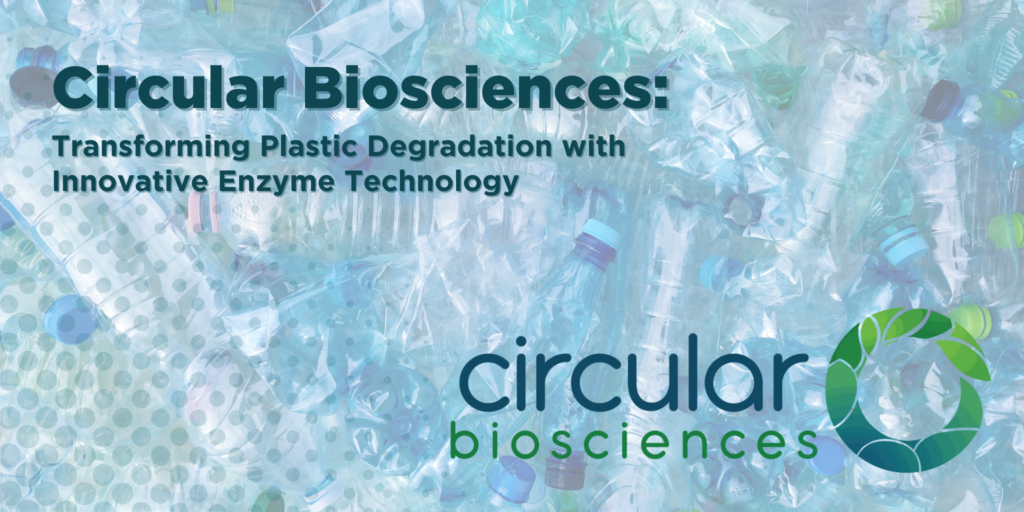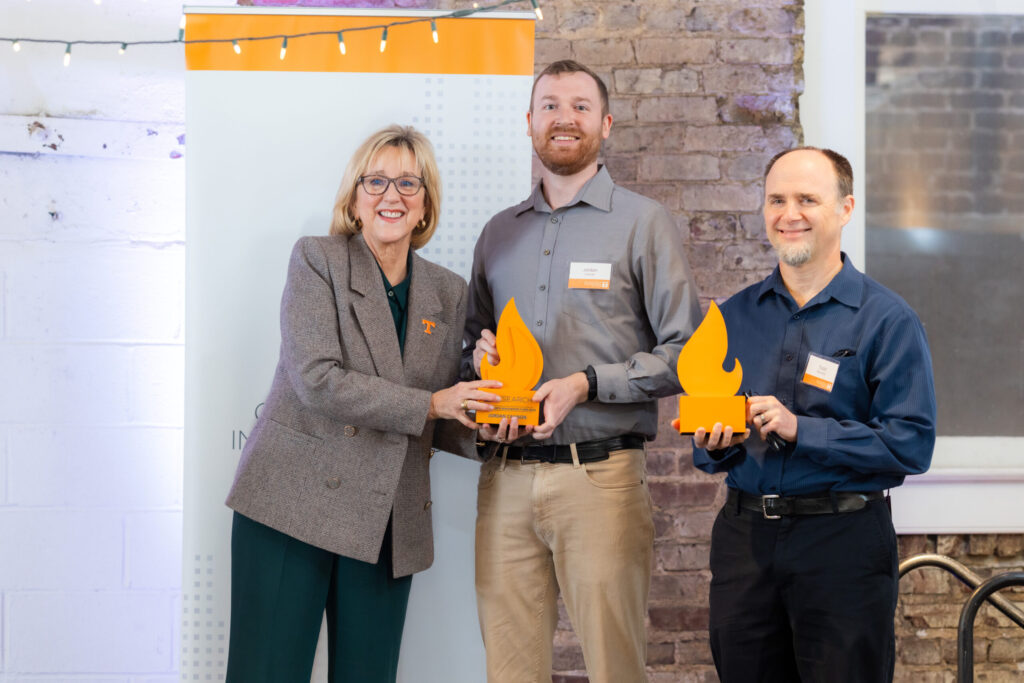
Circular Biosciences, a startup founded by Jordan Cannon, is at the forefront of developing sustainable solutions for plastic degradation. Born out of research from Cannon’s PhD work in Todd Reynolds’ lab in the Department of Microbiology at the UT Knoxville, the company is focused on utilizing groundbreaking enzymes to accelerate the biodegradation of polylactic acid (PLA) plastics. One of the key players in Circular Biosciences’ success has been UTRF.
The company’s innovative approach addresses a growing environmental issue: the accumulation of plastics that take centuries to decompose. PLA is often marketed as a “biodegradable” plastic, but its degradation is dependent on specific conditions, such as industrial composting, and can still take years or even decades in a home or natural setting. Circular Biosciences aims to change this by developing enzymes that can be added to plastics, enabling them to degrade more effectively in a variety of environments, including home composts, soil, and aquatic systems.

The journey of Circular Biosciences began when Cannon began researching organisms capable of biodegrading PLA. Through this work, Cannon engineered an enzyme that exhibited nearly 200 times the activity of the original enzyme. This breakthrough spurred Cannon to explore ways to enhance the enzyme’s capabilities and develop a process to incorporate it into plastics. Now, Cannon envisions a world where single-use PLA products—such as cups or packaging—degrade within months after disposal, without relying on industrial composting facilities.
In addition to technological development, Circular Biosciences is working on addressing concerns regarding potential degradation during product use. Cannon and his team are exploring innovative encapsulation techniques to ensure that the enzymes remain inactive while the product is in use, only activating when it enters the right environmental conditions.
UTRF has been instrumental in Circular Biosciences’ journey, providing critical support from the startup’s early stages and securing the intellectual property for its enzymes. UTRF played a pivotal role in refining the team’s business model and guiding them through the process of seeking potential licensing opportunities. When initial external interest in licensing the technology did not lead to commercialization, UTRF encouraged Cannon to pursue entrepreneurship and further develop the technology.
“We’ve been working with UTRF since the beginning of our technology, and their support has been invaluable,” said Cannon. “From filing our provisional patent to helping us secure funding, UTRF has helped us transition from academia to entrepreneurship. Now we’re preparing to commercialize a technology that could make a real environmental impact.”

Circular Biosciences’s partnership with UTRF provided key support through various programs, including the National Science Foundation’s Regional Innovation Corps. The program helped the team conduct valuable customer discovery research, which revealed that the enzymes needed to be thermostable to be commercially viable. With this new direction, UTRF helped the startup secure a technology maturation grant, giving them the funding needed to develop the technology further.

Additionally, Cannon and Reynolds were recipients of the University of Tennessee’s first Chancellor’s Innovation Fund, which provided Cannon with financial support to complete his PhD while advancing the company’s goals. Currently, the startup is participating in the Innovation Crossroads fellowship at Oak Ridge National Laboratory, which will support its development for the next year and a half.
UTRF’s continuous guidance and mentorship have been instrumental to the startup’s progress. To help Cannon navigate the path to commercialization, UTRF assigned Bob Vanderhoff, UTRF Executive-in-Residence, to mentor him in entrepreneurship and commercialization. Vanderhoff began working with Cannon in September 2023, helping to strengthen the company’s value proposition.
UTRF Technology Manager Tyler Newton commends Cannon’s dedication and innovative mindset. “Since I started working with Jordan, I’ve been consistently impressed by his unwavering commitment and groundbreaking approach to tackling plastic pollution. His pioneering work with degradation enzymes is truly at the forefront of the field, and we’re fortunate to have him as part of our startup ecosystem.”
As Circular Biosciences moves toward the commercialization of its technology, Cannon and his team continue to make strides in their mission to solve one of the planet’s most pressing environmental problems—plastic waste. With the backing of UTRF, a growing network of supporters, and a commitment to innovation, Circular Biosciences is poised to make a significant impact in the sustainability sector.